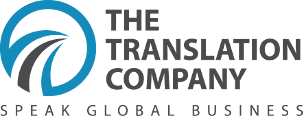
The UNIVERSITY of CHICAGO – The Graham School of General Studies
- Undergraduate
- Continuing Education
- Graduate
- Professional Studies
About the Program
Program Description
Introduction to Translation Theory
The goal of this course is to provide students with a foundation in the theory, practice, and ethics of translation. Translation involves two basic skills: ability to read the source language and ability to write in the target language. Mediating between those two skills is what might be called translation judgment.” It is this hard-to-define judgment on which the Graham School’s program will focus. Specifically, the foundation course will address the history of translation, types of translation (semantic or literal translation versus communicative or target-language-driven translation), translation ethics, and the business of translation.
Legal Translation
This course will provide an overview of the nature of legal translation. Because a legal document, when executed, bears legal liabilities, the translation of a legal document usually has the same legal effect as the original. As a result, there are high requirements for accuracy in legal translation in meaning, tone, and style The characteristics of legal translation in general will also be discussed. This course will also cover the different areas of legal translation: corporate, litigation,intellectual property, and tax. Their respective features in translation will be reviewed. This course will give an overview of the different bases of legal systems and how to research legal issues in the countries of the various language pairs. Finally, it is important for the translator to understand cultural and linguistic differences thatshade meaning in a legal text. The differences among language pairs offered in the Graham School of General Studies curriculum will be emphasized. This course includes two components. The first component consists of three consecutive days of classes in Chicago. The second component is an eight-week practicum which participants complete online from their own homes or offices.
Commercial Translation
This course will focus on business and financial translation. Students will be expected to develop an understanding of the terminology and concepts mostoften encountered in business and financial translations and will be encouraged to read the financial press daily to aid in this process. Students will be required to develop a language-specific glossary of terms, indicating their usage in various contexts, based on the course readings and assignments and any research they do to complete the assignments. Students will also be expected to hone their terminology reserach skills. This is particularly important for the ever-evolvingterminology of finance and investment banking, as this terminology is rarely found in bilingual sourrces. Students will also be taught to seek and evaluate target language parallel documents for their translations whenever possible and will be asked to share these documents with their practicum colleagues and their instructor. Some of the topics to be covered in this course are lettters of credit, securitites issues and markets, vrious forms of debt, and annual reports. This course includes two components. The first component consists of three consecutive days of classes in Chicago. The second component is an eight-week practicum which participants complete online from their own homes or offices. Grading will be based on the final course glossary, on the parallel documents students provide, and on the practicum weekly assignments.
Building Your Translation Business in Troubled Times
This course will focus on tips for building your freelance translation business, including: Creating an effective freelance résumé, especially for beginners coming from other careers. How to build your client base, especially getting those keyfirst chances. Avoiding pitfalls and career-crushing bloopers. Working with translation companies. Invoicing. Insurance. Websites. Calculating whatyour services are worth. Earning potential. Bookkeeping. Producing quality translations. Contracts or less formal agreements and other legal issues, including breach of agreement, client due diligence. Subcontracting (translations and/orediting your own work). Tax concerns. We will also touch on hardware and software needs, building a virtual and hard copy reference library, and tips on working more efficiently. Bring along details of your favorite reference sources so that we can all share our knowledge. We will spend a lot of time on question-and-answer periods and in discussions, so come armed with questions and ideas. We will discuss the skills required for success in the translation business, along with networkingopportunities and professional associations that will help you attain your goals.
No discussion would be complete without touching on translation business ethics. There will also be a discussion of the pros and cons of freelancing versus running a translation company and the different skills needed for each. While the mainfocus will be on translation, many of the topics will also apply to interpreting.
Costs
$1,450 each course.
Editor notes
The Chicago University offers a selection of four very interesting courses. One translation introductory course comprising the basic aspects of the profession; two courses of specialization that will prepare you to be an expert in legal and commercial translation, and a specific course for those wishing to build their own translation business, which will teach you every aspect involved in working on a freelance basis.
Link
https://grahamschool.uchicago.edu/php/translationstudies/
Contact Information
Translation Studies Certificate Program, Universityof Chicago Graham School, 1427 E. 60 St., Chicago,IL, 60637
Phone 773-702-1682
E-Mail: s-medlock@uchicago.edu

